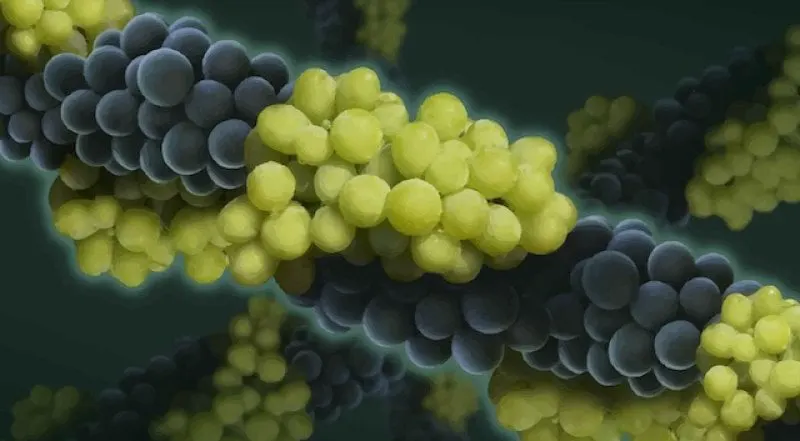Europe’s ‘most cherished’ grape varieties threatened by deadly diseases. CRISPR can help save them
Europe’s ‘most cherished’ grape varieties threatened by deadly diseases. CRISPR can help save them


How the latest breeding techniques are saving the taste of our most cherished grape vine varieties.
European Seed (ES): Could you tell me a bit more about your project?
Michele Morgante (MM) [Full Professor at the Laboratory of Plant Genomics of the University of Udine, Italy]: We started 21 years ago at the University of Udine with a program to create new wine grapevine varieties resistant to powdery and downy mildew through traditional breeding, i.e., crossing and selection.
…
We crossed elite wine grape varieties such as Merlot, Cabernet Sauvignon, Sauvignon Blanc with so called introgression lines, i.e., resistant varieties that were the result of several rounds of backcrosses with elite Vitis vinifera varieties following an initial cross with wild species from America and Asia that carried the disease resistance genes.
An additional opportunity is offered also by genome editing technologies such as CRISPR/Cas9. Resistance to fungal pathogens in plants can be achieved not only by deploying resistance genes that recognize the arrival of the pathogen and prevent its spreading, but also by inactivating susceptibility genes, i.e. plant genes that are needed for the pathogen to enter plant cells.
One of them, a susceptibility gene to powdery mildew, has been identified in grapevine and precise editing could be used to inactivate it and obtain powdery mildew resistant varieties.
Read the original post

 | Videos | More... |

Video: Nuclear energy will destroy us? Global warming is an existential threat? Chemicals are massacring bees? Donate to the Green Industrial Complex!
 | Bees & Pollinators | More... |

GLP podcast: Science journalism is a mess. Here’s how to fix it

Mosquito massacre: Can we safely tackle malaria with a CRISPR gene drive?

Are we facing an ‘Insect Apocalypse’ caused by ‘intensive, industrial’ farming and agricultural chemicals? The media say yes; Science says ‘no’
 | Infographics | More... |

Infographic: Global regulatory and health research agencies on whether glyphosate causes cancer
 | GMO FAQs | More... |

Why is there controversy over GMO foods but not GMO drugs?

How are GMOs labeled around the world?

How does genetic engineering differ from conventional breeding?
 | GLP Profiles | More... |

Alex Jones: Right-wing conspiracy theorist stokes fear of GMOs, pesticides to sell ‘health supplements’




 Trust issues: What happens when therapists use ChatGPT?
Trust issues: What happens when therapists use ChatGPT? Fighting deforestation with CO2: Biotechnology breakthrough creates sustainable palm oil alternative for cosmetics
Fighting deforestation with CO2: Biotechnology breakthrough creates sustainable palm oil alternative for cosmetics California, Washington, Oregon forge immunization alliance to safeguard vaccine access against federal undermining
California, Washington, Oregon forge immunization alliance to safeguard vaccine access against federal undermining Viewpoint — Fact checking MAHA mythmakers: How wellness influencers and RFK, Jr. undermine American science and health
Viewpoint — Fact checking MAHA mythmakers: How wellness influencers and RFK, Jr. undermine American science and health 30-year-old tomato line shows genetic resistance to devastating virus
30-year-old tomato line shows genetic resistance to devastating virus Viewpoint: Video — Big Solar is gobbling up productive agricultural land and hurting farmers yet providing little energy or sustainabilty gains
Viewpoint: Video — Big Solar is gobbling up productive agricultural land and hurting farmers yet providing little energy or sustainabilty gains The free-range chicken dilemma: Better for birds, but with substantial costs
The free-range chicken dilemma: Better for birds, but with substantial costs ‘You have to treat the brain first’: Rethinking chronic pain with Sanjay Gupta
‘You have to treat the brain first’: Rethinking chronic pain with Sanjay Gupta
